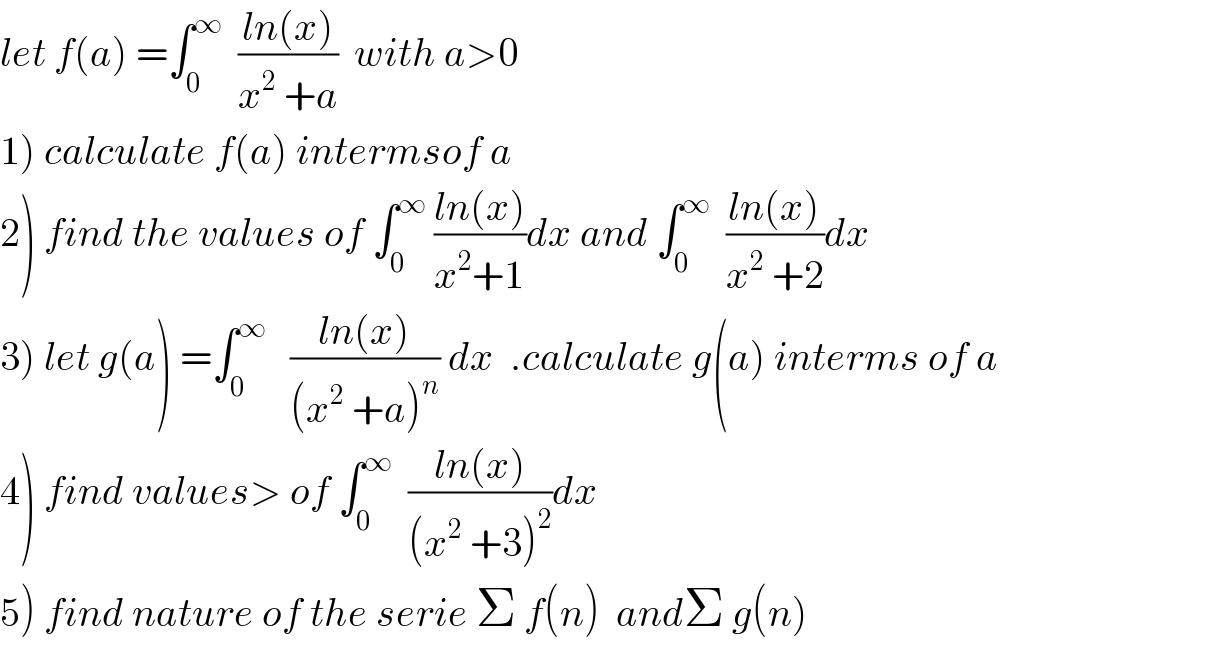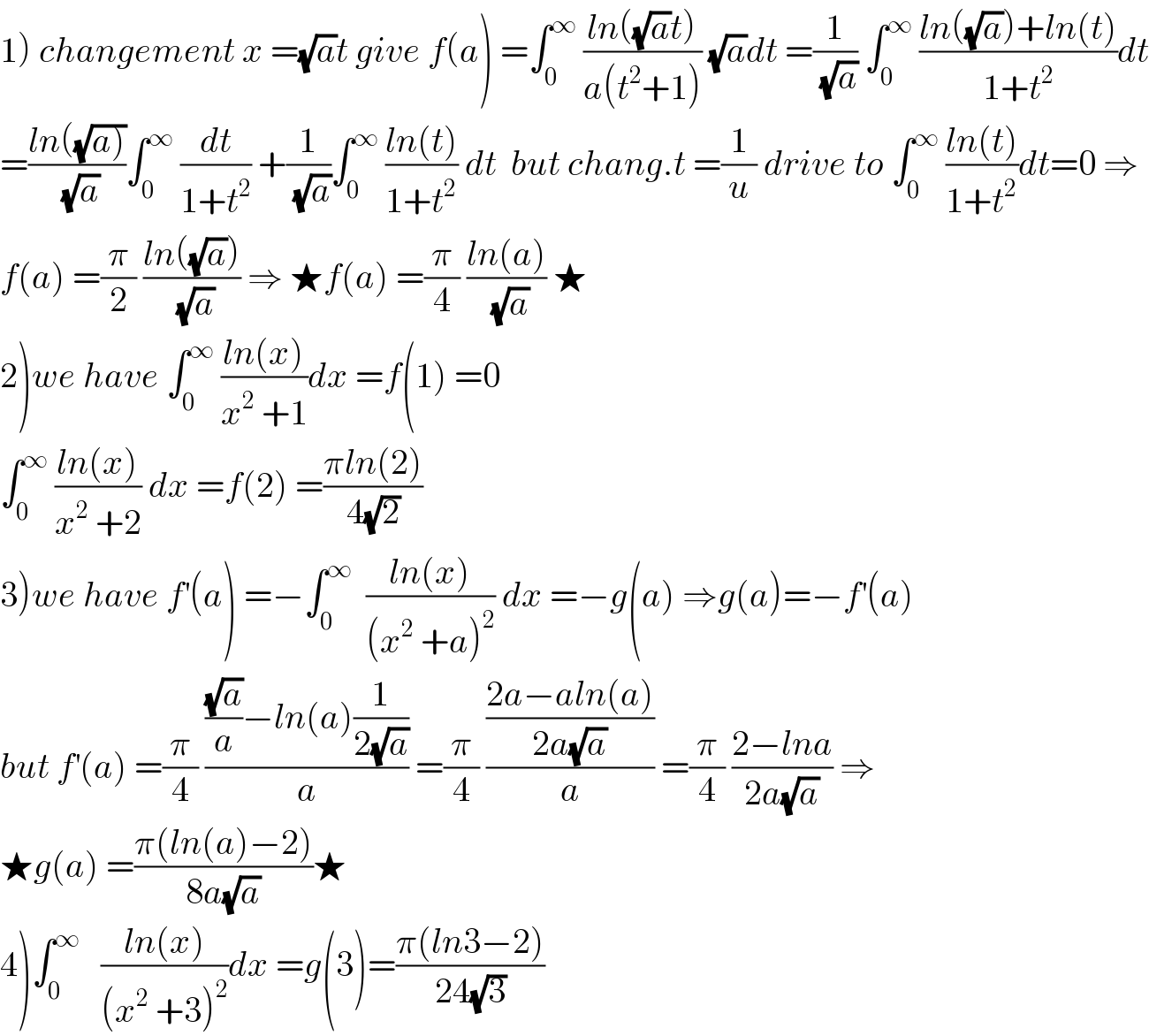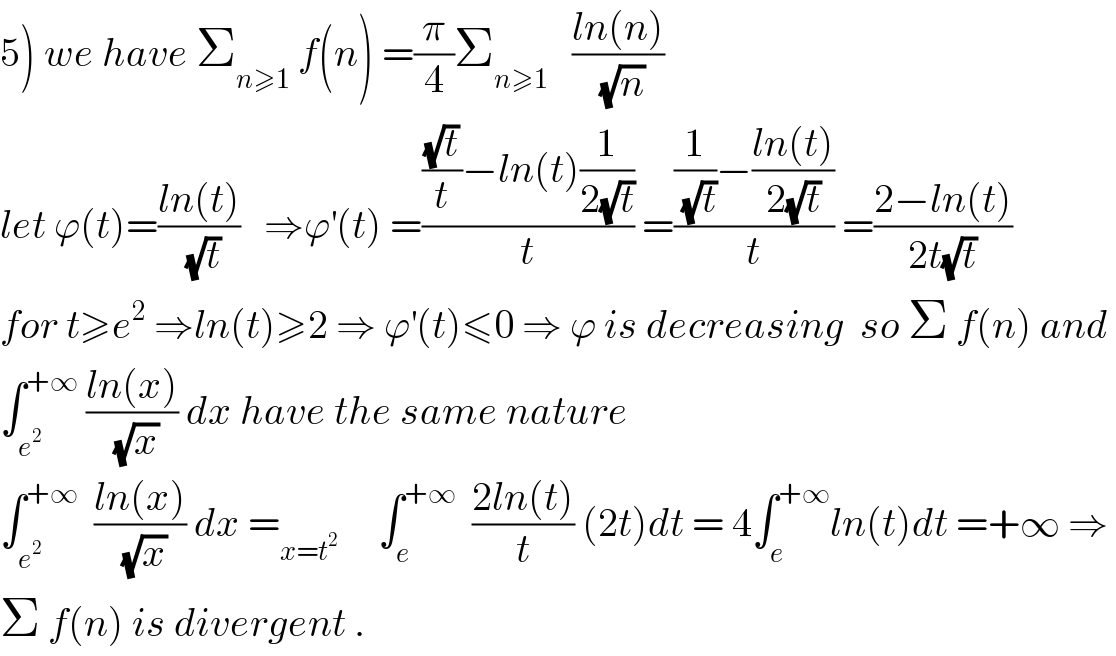
Question and Answers Forum
Question Number 55454 by maxmathsup by imad last updated on 24/Feb/19

Commented bymaxmathsup by imad last updated on 24/Feb/19

Commented bymaxmathsup by imad last updated on 26/Feb/19

Commented bymaxmathsup by imad last updated on 26/Feb/19

